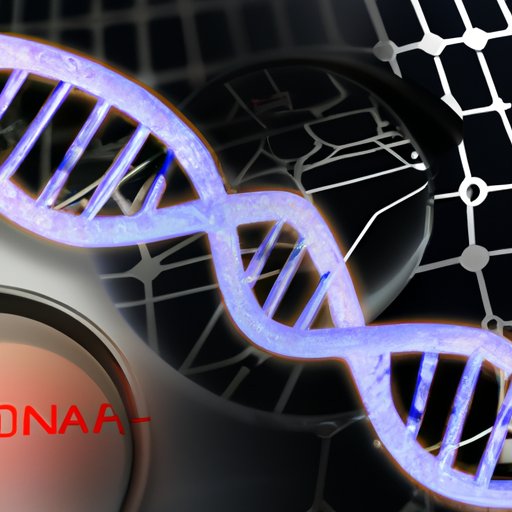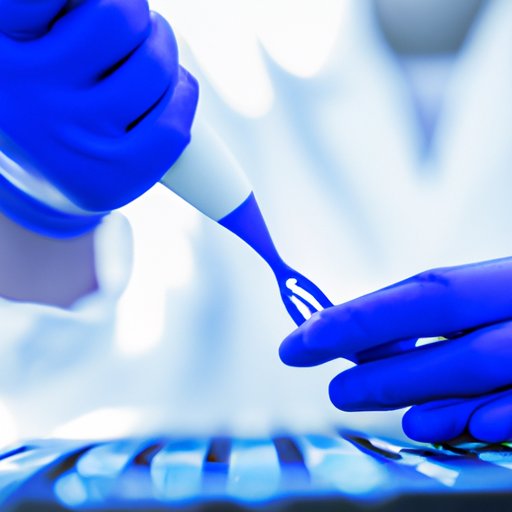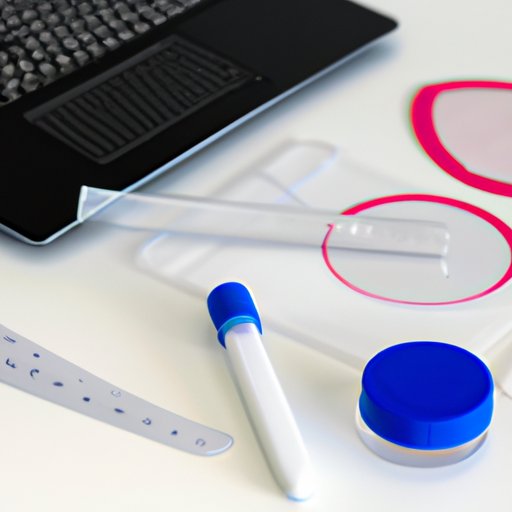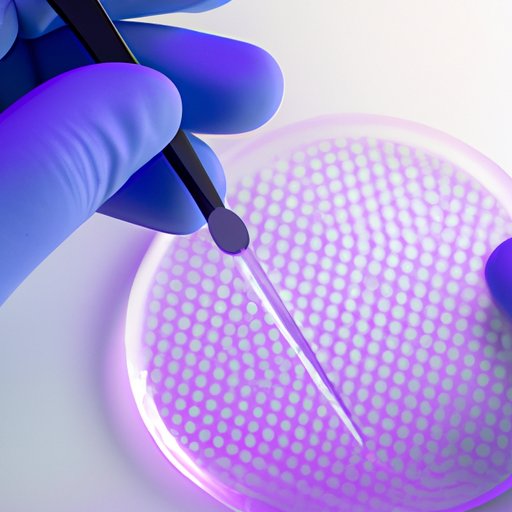Introduction
DNA technology and forensics are two rapidly growing fields that have become increasingly intertwined in recent years. DNA technology is a branch of science that studies the structure, function, and use of genetic material, while forensics is the application of scientific knowledge to criminal investigations. As advances in both fields continue to be made, more and more career opportunities are becoming available for those interested in combining DNA technology and forensics.

Exploring the Intersection of DNA Technology and Forensic Careers
The role of DNA in forensic investigations has grown immensely in recent years. DNA evidence can now be used to identify suspects, link perpetrators to crimes, and even exonerate wrongfully accused individuals. In fact, according to the Innocence Project, over 350 people who were wrongfully convicted have been exonerated based on DNA evidence since 1989.
A closer look at the growing field of DNA forensics reveals a wide range of career opportunities. From crime scene investigators to laboratory technicians, there are many roles that involve both DNA technology and forensics. In addition, there are also specialized positions such as forensic scientists and DNA analysts that focus exclusively on the intersection of these two fields.
What You Need to Know About DNA Technology and Forensic Careers
In order to pursue a career combining DNA technology and forensics, it is important to understand the types of DNA technologies used in forensic investigations. DNA profiling, or the process of analyzing an individual’s unique genetic code, is one of the most commonly used techniques. Other methods include restriction fragment length polymorphism (RFLP), short tandem repeat (STR) analysis, and mitochondrial DNA (mtDNA) testing.
There are several different career paths that involve both DNA technology and forensics. Crime scene investigators collect and analyze physical evidence from crime scenes, while laboratory technicians process and analyze biological samples. Forensic scientists specialize in the application of scientific principles to criminal investigations, while DNA analysts specialize in the analysis of DNA evidence. Finally, medical examiners are responsible for conducting autopsies to determine the cause of death.

How DNA Technology is Revolutionizing Forensic Careers
DNA technology has revolutionized the field of forensics, providing law enforcement with powerful tools for solving crimes. Not only does DNA evidence provide an accurate means of identifying suspects, but it can also be used to exonerate those who have been wrongfully convicted. In addition, advancements in DNA technology have allowed forensic experts to identify victims in cases that would have otherwise gone unsolved.
Recent developments in DNA technology have also led to the creation of new forensic careers. For example, computer scientists are now able to use algorithms to analyze large datasets of DNA evidence. In addition, bioinformaticians are developing software tools to aid in the analysis of DNA evidence. As DNA technology continues to advance, more and more career opportunities will become available.

Pursuing a Career Combining DNA Technology and Forensics: An Overview
If you’re interested in pursuing a career combining DNA technology and forensics, there are a few things you should know. Most importantly, you’ll need to complete the necessary education and training requirements. Depending on the position, this could include a bachelor’s degree in a related field such as biology or chemistry, as well as specialized courses in DNA technology and forensics.
Potential employers for those interested in combining DNA technology and forensics include law enforcement agencies, government organizations, and private companies. Salary expectations vary depending on the position, but those with experience and specialized skills can expect to earn a competitive salary.
Conclusion
DNA technology and forensics have become increasingly intertwined in recent years, creating a wide range of career opportunities for those interested in combining these two fields. From crime scene investigators to laboratory technicians, there are many roles that involve both DNA technology and forensics. In addition, advancements in DNA technology have created new opportunities for those interested in pursuing a career combining DNA technology and forensics. To succeed in this field, you’ll need to complete the necessary education and training requirements and find the right employer. With the right skills and experience, you can expect to earn a competitive salary.
(Note: Is this article not meeting your expectations? Do you have knowledge or insights to share? Unlock new opportunities and expand your reach by joining our authors team. Click Registration to join us and share your expertise with our readers.)
